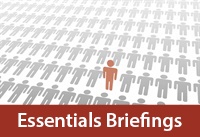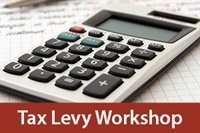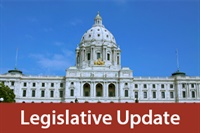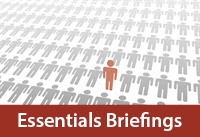
- Presenters:
- Tyler Moberg
- Duration:
- Four 90-Minute Modules
- Short Description:
- Join fellow school business leaders in discovering AI's true potential as your strategic thought partner in everyday work. This four-part virtual training series will show you exactly how to make that happen—no technical background required.
- Price:
- $89.00 - $125.00
Tue, Dec 16, 2025 - 10:30 AM to Thu, Jan 29, 2026 - 12:00 PM CST

- Presenters:
- Debra A Meier | Jake Andrist | Aaron Bushberger | Cathy Erickson | John Carlson | David Skovholt | Amanda Edberg | Pamela Meade | ....
- Duration:
- 8 Encore Sessions
- Short Description:
- The Encore conference option features 8 on-demand sessions to view starting on November 11.
- Price:
- $80.00 - $125.00
Tue, Nov 11, 2025 - 8:00 AM to 4:00 PM CST
Tags: Events Fall Conference

- Presenters:
- Alicia Waeffler
- Duration:
- 52 Minutes
- Format:
- Audio and Video
- Original Program Date:
- Dec 09, 2025
- Short Description:
- Managing the Elementary and Secondary Education Act (ESEA) Title programs brings unique opportunities and challenges. Join this session for an overview of the ESEA and 34 CFR 200. Learn more about factors included in award calculations to LEAs across all ESEA programs, within district allocations under Title I-A, fiscal requirements of Title I-A (section 1118), and Title I-A carryover limitations. The application and amendment requirements will be reviewed (ESEA sections 1112(b), 2102(b), 3116, 4106(e), 8452).
- Price:
- $0.00 - $25.00
Tags: Essentials Events

- Presenters:
- Krista Durrwachter
- Duration:
- 1 Hour 44 Minutes
- Format:
- Audio and Video
- Original Program Date:
- Nov 05, 2025
- Short Description:
- Topics include personnel policies, hiring procedures, job descriptions, performance appraisals, and pay equity reports. Labor relations, contract administration, staffing projections, and legislation affecting personnel and the EEO coordinator will also be covered.
- Price:
- $40.00 - $65.00

- Presenters:
- Anthony Pierce | Jeff Arthurs | Shelby McQuay | Aaron Bushberger
- Duration:
- 2 Hours 13 Minutes
- Format:
- Audio and Video
- Original Program Date:
- Nov 05, 2025
- Short Description:
- Topics include long-term facilities maintenance, financing capital projects, facilities planning, plant management, emergency preparedness, and energy management.
- Price:
- $40.00 - $65.00

- Presenters:
- Alex Townsend | Rachel Gorton
- Duration:
- 55 Minutes
- Format:
- Audio and Video
- Original Program Date:
- Oct 14, 2025
- Short Description:
- This session examines the growing importance of cybersecurity in education, framing it as a critical business risk with significant financial and operational consequences—where breaches can cost millions, while prevention remains far more affordable. With schools facing heightened risks due to expanding digital footprints, sensitive data, limited resources, and diverse users, the presentation will highlight today’s top cyber threats and emphasize best practices such as incident response planning, staff training, and technical safeguards like multifactor authentication, patch management, and endpoint detection—measures that strengthen resilience, reduce financial exposure, and improve insurability.
- Price:
- $0.00 - $25.00
Tags: Essentials Events

- Presenters:
- Matt Jerome Hippen | Tracey Fiereck
- Duration:
- 58 Minutes
- Format:
- Audio and Video
- Original Program Date:
- Sep 09, 2025
- Short Description:
- This session will explore how school districts manage internal chargebacks and cost allocations to support accurate, compliant budgeting and maximize the use of restricted funding. We’ll examine common chargeback categories—such as printing, facilities use, and indirect cost rates—and discuss how to determine what is allowable versus non-allowable under various funding sources. The session will also cover strategies for allocating eligible portions of grants to administrative and overhead costs, helping districts make the most of available resources. This session is ideal for K–12 finance professionals seeking to enhance internal cost management practices and optimize the strategic allocation of limited funds.
- Price:
- $0.00 - $25.00
Tags: Essentials Events

- Presenters:
- Cathy Erickson | Jason Reil | Daley Lehmann
- Duration:
- 2 Hours 43 Minutes
- Format:
- Audio and Video
- Original Program Date:
- Sep 09, 2025
- Short Description:
- The 2025 Tax Levy Workshop covers basic information about the levy and highlights important changes for this year. This session was held as a live webinar on 9/9. Remember to have your 2025 Payable 2026 Levy Limitation and Certification available for the workshop.
- Price:
- $25.00 - $75.00
Tags: Events Tax Levy Workshop

- Presenters:
- Emily Erickson | Janel Bitzan
- Duration:
- 53 Minutes
- Format:
- Audio and Video
- Original Program Date:
- Aug 12, 2025
- Short Description:
- Stay ahead of the curve with the latest GASB updates! Governmental Accounting Standards Board (GASB) Statement No. 101, Compensated Absences, is required to be implemented for the fiscal year that ended June 30, 2025. Compensated absences have been redefined, and school districts will need to include items such as sick leave in the calculation of the compensated absence liability. Janel Bitzan (Audit Partner at BerganKDV) and Emily Erickson (Consulting Actuary at VIA Actuarial Solutions) will break down the key changes, explain how they will impact school districts, and help you prepare for your audit.
- Price:
- $0.00 - $25.00
Tags: Essentials Events

- Presenters:
- Cathy Erickson
- Duration:
- 2 Hours 55 Minutes
- Format:
- Audio and Video
- Original Program Date:
- Jul 29, 2025
- Short Description:
- Overview of tax terminology, levy components, and timelines. The majority of the session includes how to budget property tax revenue and perform year-end reconciliations on property tax revenue.
- Price:
- $40.00 - $65.00
Tags: Certification Events

- Presenters:
- Kathryn Haase | Tina Burkholder
- Duration:
- 48 Minutes
- Format:
- Audio and Video
- Original Program Date:
- Jul 08, 2025
- Short Description:
- This session will provide a legislative recap through a district-focused lens. We’ll break down key outcomes from the most recent legislative session and explore what they mean for school districts. Topics will include effective dates, new or updated reporting requirements, and potential areas of responsibility. Our goal is to move beyond what happened at the Capitol to what we need to be thinking about and planning for in our districts. This is a valuable opportunity to align policy changes with district operations and strategic planning.
- Price:
- $0.00 - $25.00
Tags: Essentials Events

- Presenters:
- Cathy Erickson
- Duration:
- 1 Hour 36 Minutes
- Format:
- Audio and Video
- Original Program Date:
- Jun 18, 2025
- Price:
- $0.00 - $25.00
Tags: Events Legislative

- Presenters:
- Angie Haeny Manuel | John Carlson
- Duration:
- 39 Minutes
- Format:
- Audio and Video
- Original Program Date:
- Jun 10, 2025
- Short Description:
- Discover how to effectively prepare a Long-Term Facilities Maintenance (LTFM) plan with insights from two districts—one large, one small. Learn the key differences between a “pay-as-you-go” LTFM levy and bonded LTFM debt, and gain practical strategies tailored to districts of all sizes.
- Price:
- $25.00 - Base Price
Tags: Essentials Events

- Duration:
- 57 Minutes
- Format:
- Audio and Video
- Original Program Date:
- Apr 08, 2025
- Price:
- $0.00 - $25.00
Tags: Essentials Events

- Presenters:
- Melissa Elder | Nicole Barron
- Duration:
- 2 Hours 18 Minutes
- Format:
- Audio and Video
- Original Program Date:
- Apr 03, 2025
- Short Description:
- Topics include breakfast and lunch programs, free and reduced lunch programs, commodity programs, state and federal funding, equipment requirements, fund balance restrictions, labor relations and safety practices. This course was presented as a live webinar, and was recorded to be viewed on-demand. This registration is for the on-demand version.
- Price:
- $40.00 - $65.00
Tags: Certification Events

- Presenters:
- Kara Lundin | Garrity Gerber
- Duration:
- 52 Minutes
- Format:
- Audio and Video
- Original Program Date:
- Mar 11, 2025
- Short Description:
- Enrollment is the single biggest estimate that goes into a budget. This webinar will discuss how to estimate your enrollment with basic calculations using what you already have.
- Price:
- $0.00 - $25.00
Tags: Essentials Events

- Presenters:
- Joe Prom | Danny DuChene | Garrity Gerber
- Duration:
- 57 Minutes
- Format:
- Audio and Video
- Original Program Date:
- Feb 11, 2025
- Short Description:
- A panel of business officials representing districts of different sizes will discuss their staffing budget and planning processes.
- Price:
- $0.00 - $25.00
Tags: Essentials Events

- Presenters:
- Jennifer Butler | Julie Neurure
- Duration:
- 57 Minutes
- Format:
- Audio and Video
- Original Program Date:
- Jan 14, 2025
- Short Description:
- Have you heard that some mental health services now qualify for third party reimbursement through Medical Assistance (MA)? Join us to learn more about this new option for generating revenue for your district while providing necessary services for your students.
- Price:
- $0.00 - $25.00
Tags: Essentials Events

- Presenters:
- Tracey Fiereck | Kara Lundin
- Duration:
- 59 Minutes
- Format:
- Audio and Video
- Original Program Date:
- Dec 10, 2024
- Short Description:
- As funding constraints challenge public education, school and district leaders must find creative ways to navigate budget cuts without compromising the quality of education or equity for students. This session offers targeted strategies to manage budget reductions, preserve critical programs, and support staff and student needs effectively.
- Price:
- $0.00 - $25.00
Tags: Essentials Events

- Presenters:
- Katie Klanderud
- Duration:
- 58 Minutes
- Format:
- Audio and Video
- Original Program Date:
- Nov 12, 2024
- Price:
- $0.00 - $25.00
Tags: Essentials Events

- Presenters:
- James Rueben Westrum
- Duration:
- 1 Hour 8 Minutes
- Format:
- Audio and Video
- Original Program Date:
- Oct 08, 2024
- Short Description:
- This session will include a discussion of the overall risk management function and process, including risk identification, mitigation, avoidance and reduction of exposures, as well as best practices related to safety committees, safety plans, hazard controls, and accident reduction strategies
- Price:
- $0.00 - $25.00
Tags: Essentials Events

- Presenters:
- Michael Hart
- Duration:
- 48 Minutes
- Format:
- Audio and Video
- Original Program Date:
- Sep 10, 2024
- Price:
- $0.00 - $25.00
Tags: Essentials Events

- Presenters:
- Cindy Lee Olson
- Duration:
- 38 Minutes
- Format:
- Audio and Video
- Original Program Date:
- Aug 13, 2024
- Short Description:
- This webinar will provide business managers insight to month end processes, including reconciliations & reporting.
- Price:
- $0.00 - $25.00
Tags: Essentials Events

- Presenters:
- Cathy Erickson
- Duration:
- 2 Hours 19 Minutes
- Format:
- Audio and Video
- Original Program Date:
- Jul 30, 2024
- Short Description:
- Overview of tax terminology, levy components, and timelines. The majority of the session includes how to budget property tax revenue and perform year-end reconciliations on property tax revenue. IMPORTANT: As part of this course, attendees will need to have access to their Pay 23 levy report.
- Price:
- $40.00 - $65.00
Tags: Certification Events

- Presenters:
- Andi Johnson
- Original Program Date:
- Jul 09, 2024
- Short Description:
- This session will provide helpful tips for preparation for your upcoming audit.
- Price:
- $0.00 - $25.00
Tags: Essentials Events
